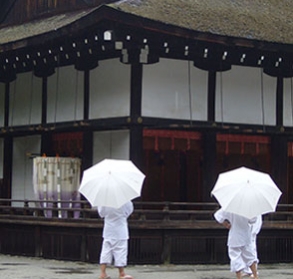
East Asian Languages and Cultures Courses
Fall 2024 course description coming soon
This course will provide students with a basic understanding of the history, teachings, and practices of the Buddhist tradition. We will begin with a look at the Indian religious culture from which Buddhism emerged, and then move on to consider the life of the Buddha, the early teachings, the founding of the monastic order, and the development of Buddhist doctrinal systems. We will then turn to the rise of Mahāyāna Buddhism, and the transformation of Buddhism as it moved from India to China, Japan, Tibet and the countries of Southeast Asia. We will end with a brief look at contemporary controversies over, (1) the tulku (reincarnate lama) system in Tibet; (2) the ordination of Buddhist nuns in Southeast Asia; and (3) the rise and popularity of mindfulness meditation in America. Readings will cover a variety of primary and secondary materials, as well as two short novels, and we will make use of films and videos. There are no prerequisites for this course—everyone is welcome. But the course does demand a great deal of time and effort on the part of students. There is a lot of reading as well as a short written assignment or quiz each week, and attendance at all lectures and discussion sections is mandatory. Students should only enroll if they can commit the required time and energy to the course.
In this course we compare the cultural traditions of tea in China and Japan. In addition, using tea as the case study, we analyze the mechanics of the flow of culture across both national boundaries and social practices (such as between poetry and the tea ceremony). Understanding the tea culture of these countries informs students of important and enduring aspects of both cultures, provides an opportunity to discuss the role of religion and art in social practice, provides a forum for cultural comparison, and provides as well an example of the relationship between the two countries and Japanese methods of importing and naturalizing another country's social practice. Korean tea traditions are also briefly considered.
Course description coming soon
Higher Learning begins with the study of heaven. As the source of orientation in space and time, heaven provides humanity the foundation for its knowledge and political order. To understand what knowledge is or how politics function, we need a basic understanding of the ways of heaven. This course examines the function heaven serves in the founding of order against the void in nature through the formation of conventional systems of time and space and the role heaven has played in the promulgation of governments. From a cross-cultural, interdisciplinary perspective that covers the course of Eurasian history and using primary sources in translation, we will see heaven unfold through the developments that leave us with the world we know today.
This proseminar in literary theory and methods will serve as an intensive crash course in the interpretative practice known as “close reading,” open to any student who may foreseeably benefit from such practice. While the dominant trend in cultural studies East and West has moved away from formal analysis to prioritize content and context, we will reassess the potential merits of close reading by considering a given work’s aesthetic and medium specificity as we collectively exercise our interpretive muscles. Toward this end, we will pair influential literary-critical texts from scholars in various language areas with a range of East Asian fiction, poetry, painting, music, film and photography on which students will conduct weekly close reading exercises.
This seminar puts into conversation a series of multidisciplinary reflections on the “Anthropocene” with recent theoretical works on environmental media and art in order to explore our linked metabolism with the planet. This will be an exploration in three parts: 1) identifying the conceptual hallmarks of environmental humanities forged under the sign of the Anthropocene; 2) exploring eco-critical responses in media and art theory to anthropogenic impacts, including the imprints of colonial militarism, on transpacific environments; and 3) critiques of Anthropocene and future directions. All readings will be available in English translation, though participants are encouraged to read primary sources in the original languages corresponding to their area(s) of expertise. Requirements: in-class presentation; final seminar paper.




